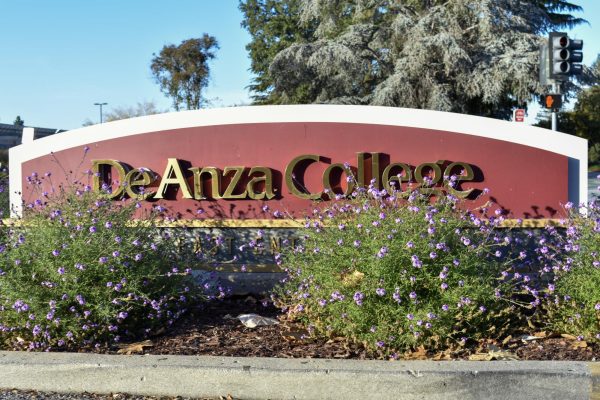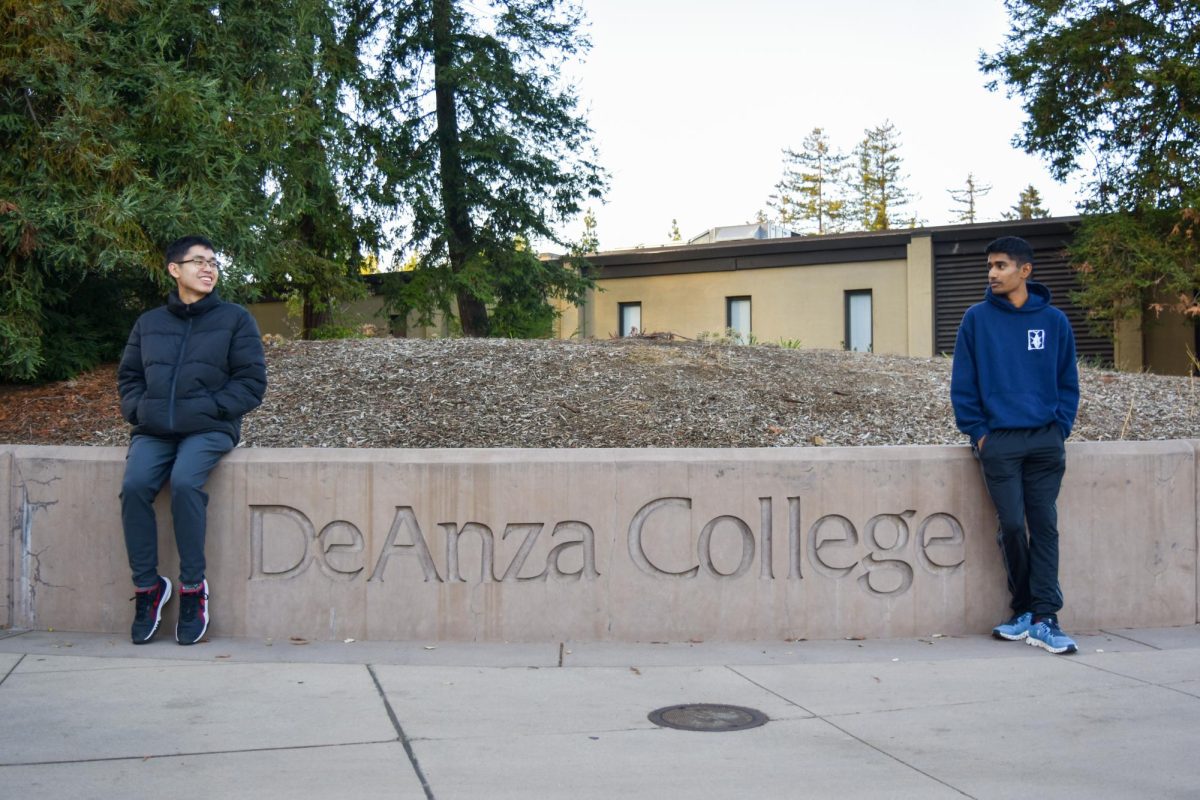Founded in 1967, De Anza College was named after Juan Bautista de Anza to recognize the Spanish history of California. Anza was a Spanish explorer and military commander best known for his expeditions to California and for establishing the first non-Native settlement in present-day San Francisco Bay.
After De Anza College hosted an Indigenous People’s Day Panel about Anza on Oct. 17, a petition to rename De Anza College with over 40 signatures began circulating among students and staff. The group that started the petition, the De Anza Name Exploration Committee, believes that De Anza College’scurrent name is inappropriate because it alludes to Spanish colonization, which affected many Native Americans. Cynthia Kaufman, De Anza College’s director of Vasconcellos Institute for Democracy in Action, recalls a statement made by speaker Valentin Lopez, the Chairman of the Amah Mutsun Band, during a VIDA meeting.
“He said, ‘You will want to think about De Anza College’s name,’” Kaufman said. “And so, a bunch of us said, ‘Yeah, let’s think about our name’ out of respect for him and other Indigenous folk in the area. We decided to look into it, and we’ve had a group called the De Anza Name Exploration Project, and the first thing we did was hold an event to look into Juan Bautista de Anza.”
In 2022, De Anza changed its mascot from the Dons, a title for Spanish nobility, to Rory the mountain lion for similar reasons. While the school initially had concerns about cost in regards to sports uniforms featuring the mascot, Kaufman says that the college decided to replace them once they were worn out. She recognizes a potential name change could be very costly, due to changing the school sign and logo, sports uniforms and more. However, she believes De Anza College could take a similar approach as it did for changing the mascot by gradually implementing a new name.

Another concern regarding De Anza’s potential name change is how it would impact the school’s reputation. Much of De Anza’s current renown is tied to its name, according to Kaufman. Therefore if the name was to be changed, De Anza could suffer a decline in recognition.
Junior and middle college student Hershey Janga agrees, saying that while the name change could also affect the school’s reputation, this would be an important step to ensure that the school is not named after someone like Anza.
“De Anza is known as one of the best community colleges in California, so if they do change the name, it’s going to be hard to bring that back, or it might make it more popular because they’re taking this initiative,” Janga said. “I would actually find it cool or unique because it’s a change from a name that represents something bad, so it’s transformative and interesting to talk about.”
Kaufman agrees and has seen two recent examples of a push for a name change — Cabrillo College and the University of California, College of the Law, San Francisco, previously known as the University of California, Hastings College of the Law. Cabrillo College, named after Juan Rodriguez Cabrillo, is named after a Spanish explorer who enslaved local indigenous people. However, as of August 2023, the Cabrillo College board members decided with a 6-1 vote to postpone the name change process, which originally started in November of 2022. Despite initial lawsuits, the University of California, College of the Law, San Francisco was successfully renamed after officials considered the wrongdoings of Serranus Hastings, a former California Supreme Court Justice. The college was named after him due to his support in establishing the school, but like Anza, the role he played in atrocities committed against Native Americans sparked the push to rename the school.
However, the renaming of any school has many steps. In order to facilitate an official name change, De Anza Student Government Student Trustee Javier Gomez Tagle, who attends monthly board meetings at the Foothill-De Anza district and works on district issues, says that someone would first have to propose it among staff. The proposal would then be discussed at a series of meetings to get approved at a school level and then at a district level. At this stage, more students would be involved and would participate in the decision of a name change.
“The District Board of Trustees is where we would decide, ‘Yes, this is the name of the college now, we’re going to go through with it,’” Gomez Tagle said. “First it starts as a discussion item, then it usually takes a couple of months to become an action item. An action item is where we officially vote yes or no and once it passes through the action item, that’s when it would be official that De Anza has been renamed.”
For the District Board of Trustees to make a decision on an issue, Gomez Tagle says that students are first given an opportunity to express their opinions. As a student representative, he gathers student input through Google Forms, sending them out on the De Anza Discord.
“While I’m hearing about all the things that are happening at the district, I report this back to the De Anza Student Government so that they can talk with other students as well,” Gomez Tagle said. “If De Anza were to go through a name change, we would probably gather student feedback. There’s always going to be a group that won’t be happy, but if this transition is something that will be better in the long term in terms of not offending any specific groups, then I think that would be a good change.”
Senior Sid Jain, who concurrently takes courses at De Anza College, says that while the name change won’t have a huge impact on him as he will be in college next year, it could take a while for the community to transition or get used to. In addition to De Anza College, he says that De Anza Boulevard also carries Anza’s name, questioning whether the name change would really make a big difference.
“I don’t think the name change will affect the community that much,” Jain said. “For example, Twitter got renamed to X, but everyone still calls it Twitter. People are still going to call it De Anza — maybe some people will switch to the new name, but for the most part, people who knew it as De Anza will still call it De Anza.”
With potential drawbacks and benefits, Kaufman views a prospective name change as something that is necessary and monumental for the community, allowing residents to educate themselves on the history behind the community college’s name.
“I think it’s exciting — I think the result will be great, because once you know what a terrible person Anza was and how involved he was in a really genocidal process of colonialism, the name doesn’t sit well anymore,” Kaufman said. “I never really thought about it and I’ve been at De Anza for 32 years. The process of organizing for something like this gets us into these conversations: what do these things mean, how do we want to represent ourselves, what are our values and what do we care about? I think that reflecting on those things is a very healthy process.”














